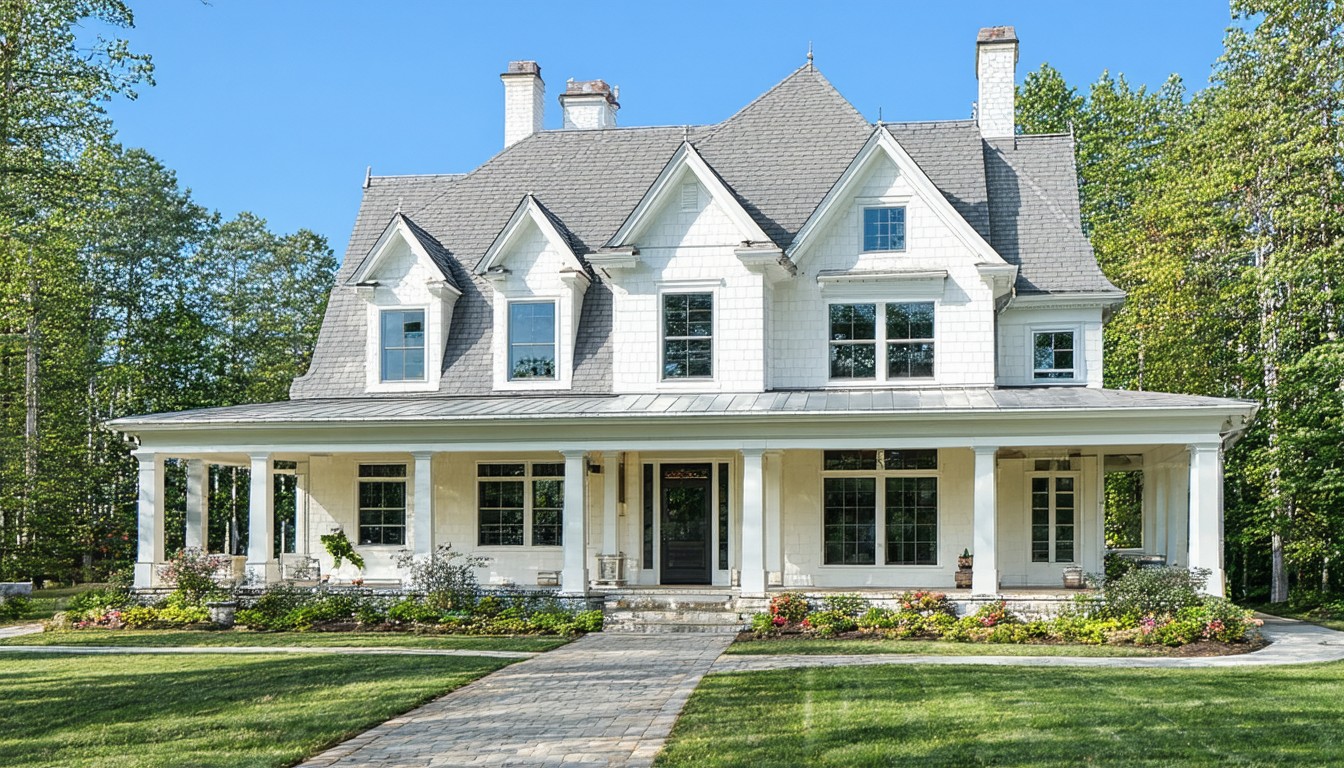Searching for the perfect house for sale can feel both exhilarating and overwhelming. With countless properties available—from serene suburban retreats to dynamic, urban dwellings—today’s buyers face more choices than ever before. This article delves into the essentials of finding your ideal home, providing expert insights, up-to-date market data, and practical tips to guide your buying decision. Understanding how to find is essential for better outcomes.
Understanding Today’s Real Estate Market
The residential real estate market continues to evolve, shaped by shifting economic trends, technological advancements, and changing homeowner preferences. As mortgage rates fluctuate and inventory levels respond to demand, potential buyers must stay informed to make smart decisions.
“In 2023, the national median home price reached $416,100, with demand remaining strong despite a slow rise in mortgage rates.” — National Association of Realtors (NAR)
Key Trends Influencing Houses for Sale
- Remote Work Impact: More people now prioritize home offices and larger living spaces.
- Sustainability: Energy-efficient upgrades like solar panels and smart thermostats are increasingly desirable.
- Affordability: With prices rising in many metro areas, buyers expand searches to suburban or rural markets.
- Digital Homebuying: Virtual tours and online listings are standard tools for narrowing choices quickly.
Steps to Finding the Right House for Sale
Purchasing a home is a complex journey. Below is a streamlined approach to position yourself for success.
1. Determine Your Budget and Financing Options
Start by evaluating your finances and meeting with mortgage lenders. Pre-approval clarifies your purchasing power and streamlines negotiations.
| Mortgage Type | Typical Down Payment | Average Interest Rate (2024) | Best For |
|——————-|———————|——————————|————————-|
| Conventional Loan | 5%–20% | 6.8% | Buyers with good credit |
| FHA Loan | 3.5% | 6.5% | First-time buyers |
| VA Loan | 0% | 6.4% | Veterans/military |
| Jumbo Loan | 10%–20% | 7.2% | High-value properties |
2. List Must-Have Features and Neighborhood Preferences
Before browsing, outline your non-negotiables—number of bedrooms, bathrooms, school districts, and special amenities.
“Nearly 64% of buyers say neighborhood quality is just as important as home features.” — Zillow Consumer Housing Trends Report
3. Partner With a Real Estate Agent
Experienced real estate agents bring market expertise, negotiation skills, and local insights. They can help you navigate open houses, paperwork, and offers, making the process more manageable.
4. Research Listings and Schedule Tours
Utilize online listing services, community boards, and agent networks. Virtual tours and high-definition photos help you shortlist options before scheduling in-person visits.
5. Submit Offers and Negotiate
When you find the perfect home, don’t hesitate to make an offer. Expect possible counteroffers and collaborate with your agent to reach a fair agreement. A professional inspection is crucial before finalizing the purchase.
Comparing Types of Houses for Sale
The array of choices can be dizzying—from cozy condos to sprawling single-family homes. Here’s a quick overview of the main types of residential properties on the market:
| Home Type | Key Features | Average Price (2024) |
|——————-|—————————————————|———————-|
| Single-family | Private lot, more space, traditional ownership | $428,000 |
| Condo/Townhouse | Shared amenities, less maintenance | $350,000 |
| Duplex/Triplex | Multi-unit, rental income potential | $390,000 |
| Manufactured Home | Affordability, often in designated communities | $90,000 |
| Luxury Home | High-end finishes, premium location, large lots | $1.2 million+ |
Understanding these basics helps narrow your focus and compare value across properties.
What to Look for in Property Listings
An effective home search requires a sharp eye for detail. While photos may show a dream home, always investigate the fine print in property descriptions.
- Year Built and Condition: Older homes may need updates, while new builds might offer modern amenities.
- Square Footage and Layout: More isn’t always better—think about flow and usability.
- HOA Fees: Condos or homes in communities might have additional association fees.
- Proximity to Schools & Services: Calculate daily commute times and check school ratings.
“Savvy buyers always request a seller’s disclosure statement and a recent property survey.” — Risa Sheppard, veteran real estate broker
Success Stories: Real Homebuyers in Action
Many buyers have succeeded in this market by staying prepared and adaptable. Take the experience of the Martins, a young family who shifted their search to a nearby suburb when city prices soared. Using a mix of online research, virtual tours, and advice from their agent, they found a well-priced home within weeks.
“Speed matters in today’s competitive market. Our agent helped us submit a strong offer within hours of the open house. We’re thrilled with our new home!” says Sarah Martin.
Navigating Competitive Markets and Bidding Wars
With inventory tight in many popular areas, multiple offers are common. Here’s how buyers can stand out and improve their chances of success:
- Get Mortgage Pre-approval Early
- Offer Competitive Terms: Flexibility on closing dates or waiving minor contingencies can be attractive.
- Write a Personal Letter: Sellers sometimes favor buyers who express genuine interest and share their vision for the home.
Hidden Costs When Purchasing Houses for Sale
Budgeting accurately means looking beyond the sticker price. Consider:
| Cost Type | Estimated Amount | Notes |
|———————|————————|———————————–|
| Closing costs | 2%–5% of purchase price| Includes lender & attorney fees |
| Home inspection | $400–$700 | Professional assessment |
| Appraisal | $300–$600 | Required by lenders |
| Property taxes | 1%–2.5%/year | Varies by location |
| Maintenance budget | 1%–3%/year | Ongoing repairs & upkeep |
Expert Tips for First-Time Homebuyers
- Start Saving Early: Accumulate not only your down payment but also a solid emergency fund.
- Shop Multiple Lenders: Rates and terms can vary significantly.
- Don’t Skip Inspections: Even new homes can hide costly repair needs.
- Stay HUD-Smart: Explore government programs for assistance and guidance on affordable options.
Closing Thoughts: How to Find Your Perfect Home
The search for houses for sale demands patience, planning, and adaptability. By understanding the process, clarifying your needs, and staying agile in a changing market, you’ll be well-positioned to secure your dream home. Leverage technology, professional insights, and sound financial planning to make your home purchase rewarding and smooth.
FAQs
How much should I budget beyond the listing price?
Budget an extra 2%–5% of the purchase price for closing costs, plus funds for inspections, moving, and potential repairs.
Is it better to buy now or wait for better market conditions?
There’s no universal answer—interest rates, inventory, and your personal situation all matter. Consult a trusted real estate professional and watch market trends closely.

What are the risks of waiving contingencies in a bidding war?
While waiving certain contingencies (like inspection) can make your offer stand out, it may expose you to costly repairs or appraisal gaps. Evaluate risks with your agent before deciding.
How do I know if a neighborhood is right for me?
Visit the area at different times, research crime rates and school ratings, and talk to local residents to get a well-rounded view.
Should I use a real estate agent when searching for houses for sale?
Yes. Agents offer market expertise, negotiate on your behalf, and help handle complex paperwork, making the buying process smoother.








